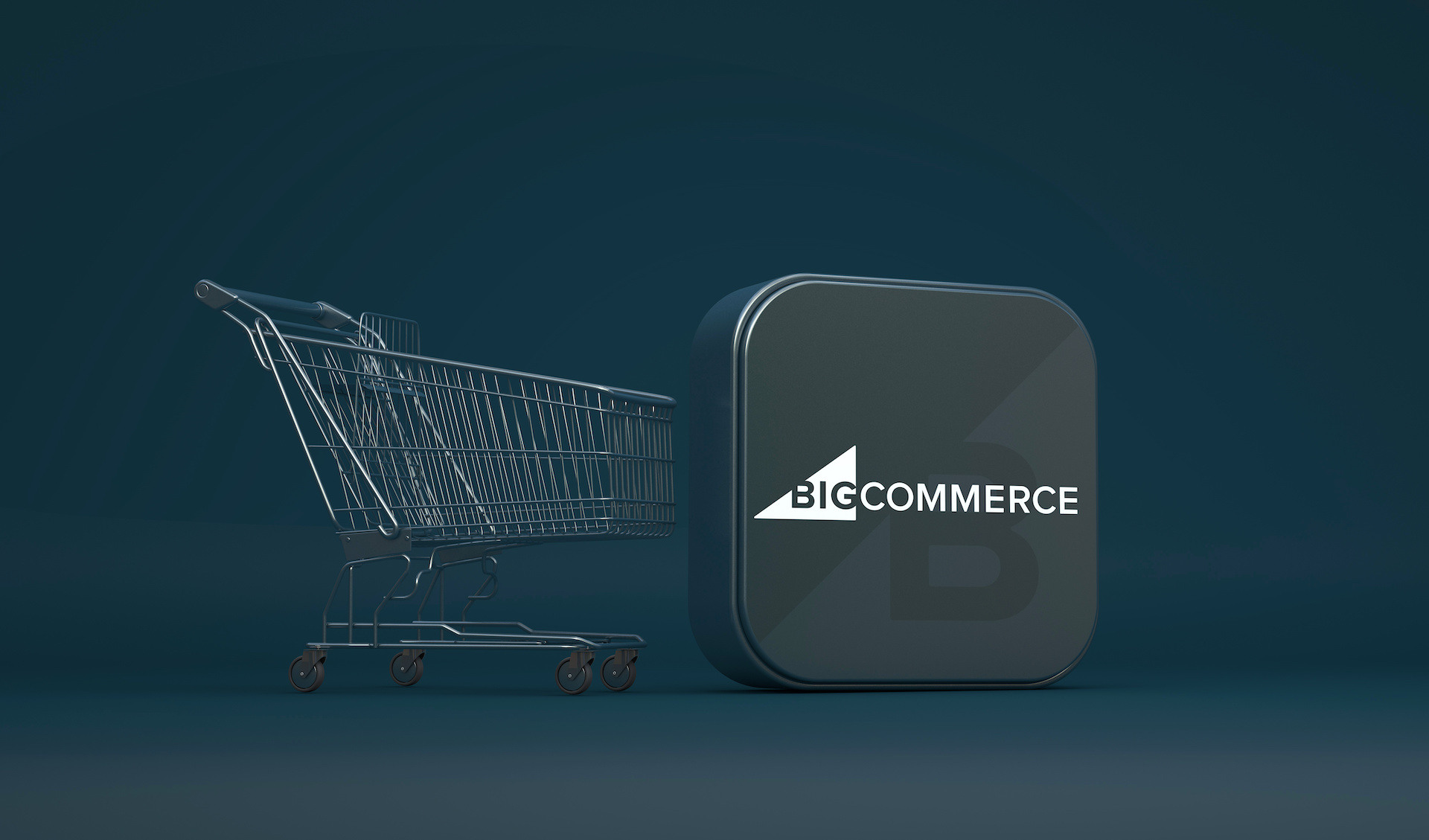BigCommerce vs Shopify Plus: Which eCommerce Platform is Right for You?
Are you looking for a robust eCommerce platform with extensive customizations to generate more revenue? Read about BigCommerce Development vs Shopify Plus.
5 min read
 Tim Bucciarelli
:
April 19, 2022
Tim Bucciarelli
:
April 19, 2022
.png)
Is the BigCommerce platform right for your business? From low up-front costs to a library of pre-designed templates to intuitive site-building and management tools, the BigCommerce platform can elevate your eCommerce website and help you increase eCommerce sales.
We are introducing a new series on BigCommerce Development. In Episode 1: Platform Overview & Comparisons, Project Manager Kristin Jordan gives an overview of BigCommerce and discusses the benefits of this robust and scalable platform. Plus, she gives examples of some big brands using Bigcommerce and showcases various platform comparisons.
(01:10) My name is Kristen Jordan. I'm a project manager at IronPlane. I first started with the company about five years ago. Being a Project Manager is about guiding clients through the website build experience and making sure all of their requirements are met during the build, and making sure that the website is a good representation of their brand and their company. I love what I do here. It brings a lot of variety. I get to work with a lot of great clients, and every day is different, which is a lot of fun.
(01:48) BigCommerce is an eCommerce solution that's been around since 2009. It currently supports more than 90,000 stores in 120 countries. It allows customers to build their online stores right from their web browser. There's no software to purchase or downloads, and there's no web hosting to have to worry about. So that makes it a SaaS, which is known as Software as a Service.
(02:22) BigCommerce allows business owners to set up a store, customize it to their needs, and then sell an unlimited number of products. And those products can be either physical products, digital products, or service-based products. So you have a lot of range there.
Some of the key features of BigCommerce are a lot of customizable, pre-built site templates for you to choose from, there's built-in SEO marketing and conversion tools, and also tools to manage shipping and payments. And all of this comes out-of-the-box. What that means is, that you don't need to download additional apps or pay for extra services. It's there as soon as you open your BigCommerce store.
Want more traffic and eCommerce sales? Learn 13 Ways to Optimize SEO Using BigCommerce.
(03:10) BigCommerce has a huge range of clients. Some of them are startups, and some of them are major corporations. Martha Stewart, Toyota, and Kodak are all BigCommerce clients.
Companies that are best suited for BigCommerce are stores that are poised for growth. BigCommerce supports the big brands that I mentioned. So you can start off very small with a lower package. The rates can be found on the BigCommerce pricing page. But as you can see from the companies that I mentioned, like Toyota, it has the depth to grow into something really significant. It is also well suited for companies that utilize marketplaces like Instagram and eBay because those functionalities are built right into the BigCommerce dashboard, which is really handy.
(04:13) So I don't want to say that BigCommerce isn't suitable for any particular business or store because it really is for most. However, if you are a company that sells only just a handful of products, BigCommerce probably isn't for you because you would be trading in some of the ease of use for the build with some of the functionality with product variations that you probably wouldn't use.
Additionally, if you're looking for a super easy, fast setup, BigCommerce might not be right for you because it does require some technical knowledge for setup. If you don't have that person on staff or don't want to hire someone to give you a little assistance, BigCommerce might not be the right choice for you.
(05:05) Shopify and BigCommerce are fairly similar, and they get compared a lot, but they do have a number of differences. I do feel like BigCommerce comes out on top in a lot of different ways. Here are a few key differences:
1. The first way is with the APIs.
Shopify has a limit on how fast you can access the APIs with 2-per-second, and BigCommerce allows for 400-per-second. So what that means is, if you're trying to sync data from a pin or an ERP you'll hit those limits really quickly. An example of that is, if you're updating 25,000 products, it'll take four hours with Shopify and just a minute with BigCommerce. So that's a huge time-saving difference.
2. Another place that BigCommerce stands out is with product options.
With Shopify, you can only have three product options and a hundred SKUs Options meaning color, size, and things like that. But if you've got a lot of variations with your products, BigCommerce lets you have 250 different options with 600 SKUs each. So if you've got a lot of options with products, you'll hit a roadblock with Shopify pretty quickly.
3. Shopify vs. BigCommerce Rates.
Shopify does have slightly lower rates than BigCommerce. However, they get you with the payments. With payment gateways, if you don't use the Shopify payments, you tend to get dinged with transaction fees that aren't quite as high with BigCommerce.
4. Shopify doesn't have as many features out-of-the-box.
Lastly, another way we can talk about expenses with Shopify and BigCommerce is that Shopify doesn't have as many features out-of-the-box. I kind of touched on that before, but with Shopify, you have to get a lot of apps to get the features that BigCommerce already has right on the dashboard. So you might be paying for monthly fees with these apps or even just a one-time charge, but that's not something you'll run into quite as much with BigCommerce.
(07:22) WooCommerce is a natural choice for someone who's already on WordPress. But BigCommerce has a lot more to offer as far as built-in features. WooCommerce is also an open-source platform, which means that you are responsible for all the security and compliance updates.
BigCommerce handles that for you being a SaaS (Software as a Service) platform. One other drawback for WooCommerce is the customer support. They rely heavily on forums and don't offer a lot of customer support. BigCommerce is really impressive with the amount of customer support they offer.
(08:14) So Magento and BigCommerce are really different. The biggest difference is that BigCommerce is a SaaS platform, and Magento is open-source. SaaS platforms are traditionally, and most often, easier to manage. Open-source platforms are usually too technical for the average business owner to handle by themselves and maintain. You will likely need front and back-end developers, as well as hostings structure, and that results in more cost.
While Magento open-source is free, you need to factor in the cost of developers and hosting when you're making that comparison. Again, it gets back to those out-of-the-box features that BigCommerce already has available. So, if you do a lot of marketplaces, those are available out-of-the-box with BigCommerce, while Magento would require some additional modules, abandoned cart email setups, and some content management features.
(09:26) BigCommerce has four different plans for pricing. They range from $29.00 to Enterprise, which is on a case-by-case basis. The three most popular plans are $29 to $299 per month, and that's all based on your revenue.
(09:55) No, there are no upgrade fees. What you're charged is what you're charged. However, as I mentioned, with it being revenue-based, if your revenue increases, like we all hope it will, you might be bumped to the next pricing tier. However, if you have a rough year, the good news is, that if your revenue goes down, you'll be bumped to the lower tier as well. So you will pay a little less.
Are you ready to optimize your existing BigCommerce website? Or, are you interested in migrating to this intuitive and robust platform? At IronPlane, our BigCommerce developers utilize BigCommerce's flexible functionalities and extensive customizations to allow your eCommerce website to stand out from your competitors. Contact us today to schedule a free consultation and to learn more about our eCommerce development solutions and services.

Are you looking for a robust eCommerce platform with extensive customizations to generate more revenue? Read about BigCommerce Development vs Shopify Plus.

Discover the top BigCommerce features to elevate your eCommerce platform. These simple, effective insights can lead to a thriving online store.

B2B eCommerce businesses need powerful platforms to manage their operations and deliver memorable customer experiences — BigCommerce can be the solution.